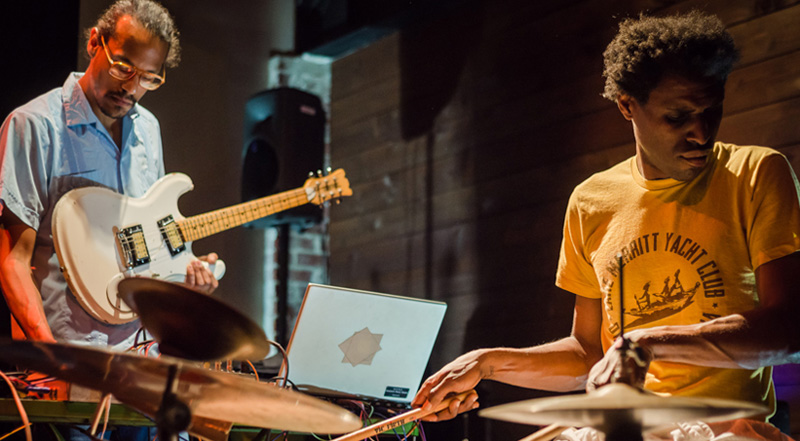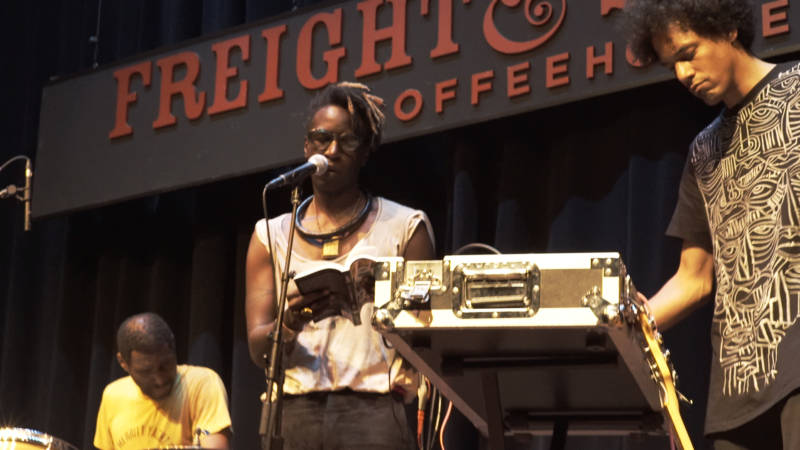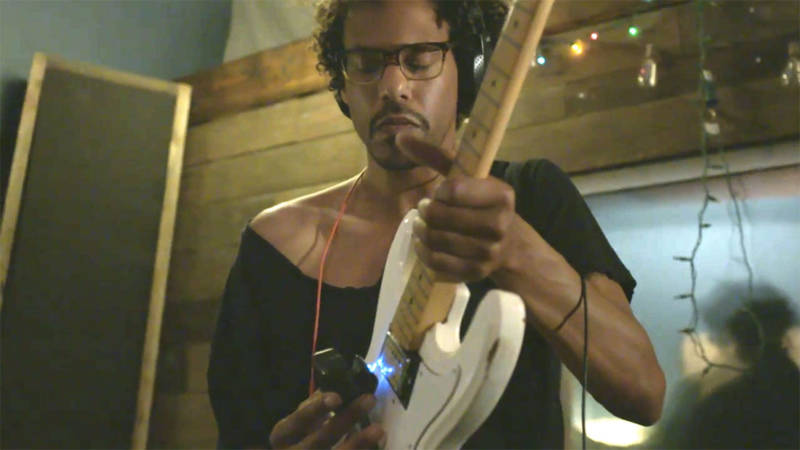Oakland duo Black Spirituals exist in and out of time — tethered to the past yet rooted in the current day, building on the propulsion of civil rights-era avant-garde jazz and filtering it through modern experimental electronics.
It’s a unique position for the Oakland duo, composed of Zachary James Watkins and Marshall Trammell, who create a vibratory noise that refracts upon itself while serving as an abstract rumination on history, oppression, and culture. (In a review, the New York Times recently dubbed them “a duo that defies categories.”) Processed through mixers and effects, Watkins’ guitar resonates even when it’s not traditionally strummed, while Trammell approaches his pared-down drum kit with the mindfulness of a musical author, improvising with Watkins’ churning atmospheres. Their music isn’t harmonious, or explicitly soothing. But then neither is much of American history.
“What is important for us is, we’ve toured four or five times or more in the U.S. and abroad, and we gather information,” says Trammell, who cites a “question of sanctuary” running throughout Black Spirituals’ work. “And we come back home to Oakland, to the Bay Area, and our community grows. We are informed by our community who’s touring, and is in resistance and resilience to oppressive things, and we celebrate our discontent together, and we keep growing.”

The name Black Spirituals derives from Watkins’ work at UC Santa Cruz, where he currently teaches, while archiving lectures by activist, composer and Sweet Honey in the Rock founder Bernice Johnson Reagon. Her lecture, “Black Spirituals,” demonstrates the power of inflection in one’s voice to convey an emotional biography; an age-old idea in black popular music that in America spans back to early Southern gospel on up to evolutions by free-jazz collectives like the Art Ensemble of Chicago and saxophonists Anthony Braxton and Albert Ayler.



